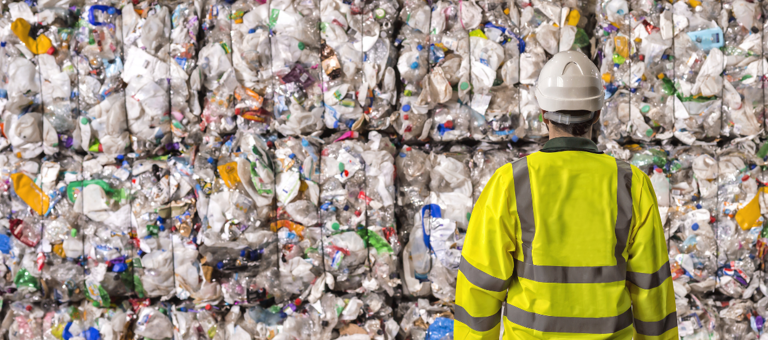
Six plastic-related questions needing to be addressed by CDP reporting companies
10 July 2023
Increasingly, environmental sustainability areas such as climate change, deforestation and water security are looked at by investors and other stakeholders as key performance measures of a company. Environmental information disclosed by companies is used by stakeholders to inform decisions and drive environmental action.
The CDP is a not-for-profit charity that runs the global disclosure system for investors, companies, cities, states and regions to manage their environmental impacts. It maintains the world’s largest and most comprehensive dataset on environmental action, with over 18,700 companies across more than 1,100 cities, states and regions reporting through its system. Companies may receive requests to disclose environmental data through CDP from any or all of the “requesting authorities”, including investor signatories, supply chain members, bank program members or initiatives they have committed to, including the RE100 initiative and the Net Zero Assets Managers initiative (NZAM).
In April 2023, the CDP incorporated 9 new questions on plastics, as a part of the water security questionnaire. This follows a request from over 740 investors with US$136 trillion in assets for disclosure on plastic-related impacts.
Sectors invited to disclose on plastic-related impacts include nearly 7,000 companies worldwide, from chemicals to fashion / apparel, food and beverage, fossil fuels and packaging.
Responding companies are assessed and scored by the CDP based on the level of detail and comprehensiveness in their response, as well as the company’s awareness of environmental issues, its management methods and progress towards environmental stewardship. This is represented by the four consecutive levels in the CDP scoring system: Leadership (A score), Management (B/B- score), Awareness (C/C- score), Disclosure (D/D- score) and Failure to Disclose (F score).
Below, we highlight the capabilities needed to accelerate and prioritise resources to mature your company’s environmental sustainability management.
The six questions companies should be asking about the use of plastic:
1. “Where is plastic in our company’s value chain and in what form?”
-
-
Value chain mapping
-
-
-
-
Are you a buyer, producer, or supplier of plastics?
-
Companies will need to map where and what type of plastic is produced, used, and disposed of in their value chain.
-
-
2. “How can our company’s exposure to plastic be quantified?”
-
-
Data collection and reporting
-
Mechanisms and tools are required to effectively measure, track, and report plastic-related data. Depending on business needs, this may need to be linked with other internal systems that are used across several functions in the company.
-
-
-
-
Governance
-
-
-
-
Governance should be established and integrated as part of the business processes to support disclosure and holistic business decision data needs.
-
-
3. “How vulnerable is our company to the use of plastic?”
-
-
Impact and risk assessment
-
-
-
-
What is your current score in the CDP and how will the new questions affect your scoring?
-
Have you assessed the potential plastics-related environmental and health impacts of your production, use and disposal of plastics across your value chain? Companies will need to include plastic considerations within their risk and financial impacts analysis.
-
-
4. “How can we reduce our plastic impact?”
-
-
Design and production
-
-
-
-
Assess sourcing strategy and establish purposeful design
-
-
-
-
Supply chain
-
-
-
-
Rather than solely focusing on reducing plastic used for processing, packaging, distribution and retailing, companies should consider performing a full lifecycle assessment to ensure that changes do not result in less sustainable options e.g. increase in food waste or transport emissions.
-
-
-
-
Disposal and end-of-life processing
-
-
-
-
Companies will need a core understanding of circularity principles to assess and quantify circularity potential of the plastic within their operations.
-
-
-
-
Shared goals with suppliers and retailers
-
-
-
-
Engage and collaborate with suppliers and retailers, setting targets and initiating granular actions to jointly reduce plastic-related impact within the value chain.
-
-
5. “What are our business targets for plastics, and how can we set ourselves up for success?”
-
-
Business strategy integration
-
-
-
-
Plastic-related risks and impacts should be baked into the core business strategy, with the intention shared and communicated to relevant stakeholders.
-
-
-
-
Operational excellence and management
-
-
-
-
Review and, where necessary, reset business unit objectives, KPIs and process design with sustainability and plastic impact in mind.
-
-
-
-
Capability and people development
-
-
-
-
Review and, where necessary, redefine roles and responsibilities, assess capability, upskills and recruitment needs.
-
-
6. “What opportunities exist for my company to differentiate and grow consumer share by eliminating plastic from my products?”
-
-
Opportunity to innovate products
-
-
-
-
Work with consumers to review the formulation of products and innovate to better meet consumers’ needs e.g. reducing the number of components in a box dye could reduce packaging and provide greater convenience to consumers when colouring their hair at home.
-
-
-
-
Consider alternative packaging
-
-
-
-
Differentiate your brand by considering alternative packaging for your product e.g. providing a reusable beach bag for swimwear purchases or enabling consumers to select an option for reduced packaging so as to reduce waste.
-
-
-
-
Grow consumer trust
-
-
-
-
Companies that are considered “kind” such as kind to the planet with environmentally friendly packaging can be more profitable. Read more on the Economics of Kindness.
-
-
Answering these questions involves complexity in data collection, measuring processes, regional regulations, and more. From strategy development to ISSB reporting, carbon budgeting to supply chain due diligence, Baringa will help find answers and develop a feasible plan for a client’s long-term sustainable evolution through our pathway approach.
We often work with multiple departments within an organisation as well as other partners, to bring clarity, efficiency and centralised communication to the entire spectrum of ESG and sustainability projects. To discuss how we can support you, please contact Jeff Hartigan, Partner, expert in Consumer Products and Retail, John Calder, Partner, expert in Supply Chain and Procurement, Patrick Winters, Partner, expert in Consumer Products and Retail, or James Taylor, expert in Sustainability Strategy and Innovation.
Sources:
Our Experts


Related Insights

Patience meets strategy: Making the leap from COO to CEO
The progression from COO to CEO – moving from leading the engine of the business to shaping the vision, managing commercial success and influencing the Board.
Read more
Price profitably or perish: B2C telcos investing in advanced pricing capabilities see 2–7x ROI in 12 months. Those that aren’t are falling behind
In the commoditised and tightly regulated UK consumer telecoms market, operators face ongoing margin pressure. Price sensitivity is high, and raising prices on core products is increasingly difficult.
Read more
Commodity market trends: expect diversification, disruption, and strategic shifts in 2026
Commodity markets in 2026: diversification, disruption, and digital transformation. Discover the trends shaping strategies for energy and trading businesses.
Read more
Baringa Elects David Hatcher as Managing Partner to lead Next Chapter of Global Growth
Global consulting firm Baringa has announced the election of David Hatcher as its new Managing Partner, effective April 2026.
Read moreIs digital and AI delivering what your business needs?
Digital and AI can solve your toughest challenges and elevate your business performance. But success isn’t always straightforward. Where can you unlock opportunity? And what does it take to set the foundation for lasting success?